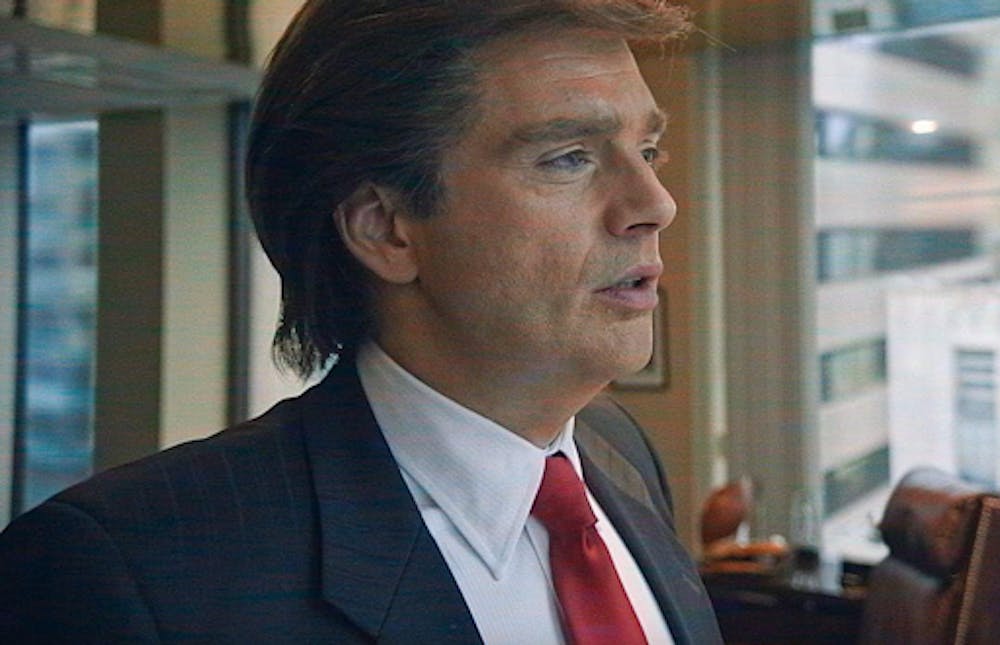By Chiara Piacentini
Staff Writer
In an eye-opening story of former President Donald Trump, director Ali Abbasi takes us back to the 1970s in his biographical drama, “The Apprentice.”
The movie begins with a clip of Richard Nixon’s Watergate speech, ending with his infamous line: “I am not a crook.” This sets the tone for the film, and from there, it follows a young Trump trying to make his way in the world of New York City as a real estate tycoon, but not without the help of a mysterious yet ruthless lawyer, Roy Cohn.
Cohn was an unfamiliar face to me at first, as I had no prior knowledge of the man himself. But as soon as Trump becomes his client, he becomes something more.
It’s clear that Cohn holds the power in the relationship as he controls everything about Trump’s mannerisms — from the way he dresses to the way he talks and thinks. He’s also the mastermind behind Trump’s success as a businessman, as Trump relies on him to get him out of multiple legal jams.
I felt like a fly on the wall, both in the sense of watching how Cohn and Trump discreetly plot to corrupt the justice system to their advantage, and also seeing Cohn transform Trump into the man he is today.
There are bits of dry humor interspersed throughout the film, which ease the sense of dread one gets when faced with this reality of how the world works. Take, for example, Trump dressed in a formal suit, pacing the floor as he tries to talk about one of his cases to a shirtless Cohn in the middle of his workout.
But the dark side of Trump that Cohn brings out in him makes itself known enough times that the dry humor becomes dark humor. It becomes even more apparent when it makes its appearances throughout his relationship with a Czech model, Ivana, who would later become his wife.
Not long after they’re married, tragedy befalls them when Trump’s alcoholic brother passes away. The tinge of sympathy I felt for the business tycoon is soon ruined when he pushes away his wife’s attempts to console him.
As the stresses of business life get to him, Trump’s marriage spirals into failure, and he capitalizes on it by sexually assaulting Ivana. The camera’s focus on Ivana’s stunned face during this experience made it even harder to watch than it already was.
At the same time, there’s a tangible power shift between Cohn and Trump when Cohn contracts AIDS — which he insists to the public is liver cancer. With this development, Trump becomes the more powerful one in the dynamic than Cohn ever was over him.
But when Cohn dies, the power the film holds over me soon dies with it. The ending doesn’t help to revive it as it can only be described as anticlimactic.
While the ending left the film feeling unfinished, the entire plot before the end redeems it. With the power struggle between Cohn and Trump along with watching Trump’s own life fall apart as his business empire rises, we get a perspective of how Trump became the man he is today. If you want to learn more about Trump’s past, it may be even more of a worthwhile watch.







